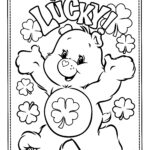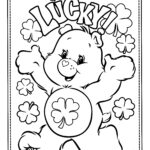Certain tickets associated with the San Francisco Giants baseball organization may be acquired through, or in association with, a registered 501(c)(3) non-profit organization. These tickets can offer a unique opportunity for fundraising or charitable support initiatives. For instance, a non-profit might purchase a block of seats to a Giants game and then resell them at a premium, using the proceeds to benefit their cause.
The significance of this arrangement lies in the dual benefit it provides. It allows the baseball team to engage in community support indirectly, while simultaneously empowering non-profit organizations to generate essential revenue. Historically, sports teams have partnered with charitable groups to enhance their community image and contribute to local causes, and this type of ticket allocation can be one manifestation of such partnerships.
Understanding the specifics of how these tickets are obtained, utilized, and their impact on both the organization and the community are key areas for further examination. Exploring the mechanics of these arrangements and their implications can provide valuable insights for individuals and organizations interested in leveraging sports for philanthropic purposes.
1. Fundraising potential
San Francisco Giants ticket allocations, when strategically leveraged through a 501(c)(3) non-profit organization, represent a considerable fundraising avenue. The allure of attending a major league baseball game, particularly involving a popular team like the Giants, creates inherent demand. This demand can be capitalized upon by non-profits through various methods, such as auctions, raffles, or direct resale at an elevated price point compared to the initial acquisition cost. The difference between the acquisition cost and the resale price constitutes the revenue generated for the non-profit’s programs.
A concrete example of this is a local children’s hospital securing a block of premium tickets. Instead of selling them at face value, the hospital can auction them off with additional perks like a meet-and-greet with a Giants player. The increased perceived value, combined with the charitable aspect, can drive bids significantly higher. Another scenario involves a smaller community organization raffling off a pair of these tickets. The sale of raffle tickets, even at a modest price, can accumulate substantial funds, especially if the prize is appealing and the raffle is well-promoted.
The fundraising potential associated with these tickets is contingent upon several factors including the seating location, the opponent, and the game date. Games against rival teams or those taking place during popular times of the year typically command higher resale values. Effective marketing and outreach efforts by the non-profit are also essential to maximizing the fundraising outcome. Despite these variables, these opportunities provide a tangible and engaging means for non-profit organizations to connect with donors and secure financial support for their missions.
2. Tax deductibility
The intersection of charitable contributions, sports tickets, and tax regulations necessitates careful consideration when examining the potential deductibility associated with San Francisco Giants tickets obtained or donated through 501(c)(3) organizations. Understanding the relevant guidelines is crucial for both donors and recipient organizations to ensure compliance and maximize potential tax benefits.
-
Donation of Tickets by Original Purchaser
When an individual or corporation purchases San Francisco Giants tickets and subsequently donates them to a qualified 501(c)(3) organization, the tax deductibility is generally limited to the lesser of the ticket’s fair market value or the amount originally paid for the tickets. If the tickets are used for an event where the donor receives a benefit (e.g., attending a fundraising gala), the deduction is further reduced by the value of that benefit. For example, if a company donates tickets originally purchased for $500 but with a fair market value of $600 at the time of donation, the deduction is capped at $500, assuming no benefit is received in return.
-
Tickets Purchased Directly from the Non-Profit
If tickets are purchased directly from a 501(c)(3) organization sponsoring an event (e.g., a charity auction or raffle), the portion of the payment exceeding the ticket’s fair market value may be tax-deductible as a charitable contribution. The non-profit is required to provide a written acknowledgement indicating the deductible amount. Consider a scenario where tickets to a Giants game are auctioned at a charity event. An individual bids and wins the tickets for $1,000, while the fair market value of the tickets is $300. The deductible portion of the contribution is $700 ($1,000 – $300), provided the individual receives nothing of significant value in return.
-
Valuation and Substantiation
Accurate valuation of San Francisco Giants tickets is essential for determining the deductible amount. Fair market value is generally defined as the price at which property would change hands between a willing buyer and a willing seller, neither being under any compulsion to buy or sell, and both having reasonable knowledge of relevant facts. Donors must obtain and maintain adequate substantiation for their contributions, such as a written acknowledgement from the recipient organization, detailing the date of the contribution, a description of the property contributed (i.e., the tickets), and a good faith estimate of the tickets’ value. Without proper documentation, the deduction may be disallowed by tax authorities.
-
Restrictions and Limitations
Tax regulations place restrictions on the deductibility of contributions, including percentage limitations based on the donor’s adjusted gross income (AGI). For individuals, cash contributions (including those made in exchange for tickets where the payment exceeds the fair market value) are generally deductible up to 60% of AGI. Contributions of property, such as the tickets themselves, are typically limited to 30% of AGI. Additionally, certain types of organizations are ineligible to receive tax-deductible contributions. Donors should verify the 501(c)(3) status of the recipient organization with the IRS to ensure the contribution qualifies for deduction.
In summary, the tax deductibility associated with these tickets hinges on various factors, including the method of acquisition (donation vs. purchase), the fair market value, and compliance with IRS substantiation requirements. Engaging with tax professionals is advisable to navigate these complexities and ensure adherence to applicable regulations when dealing with charitable contributions involving sports tickets.
Navigating Philanthropic Opportunities
Maximizing the potential benefits associated with charitable initiatives involving San Francisco Giants tickets requires careful planning and adherence to established guidelines. The following points provide direction for organizations and individuals engaging in such endeavors.
Verify 501(c)(3) Status. Prior to donating tickets or engaging in any fundraising activity, confirm the recipient organization’s valid 501(c)(3) status with the IRS. Ineligible organizations preclude any potential tax deductions for donors.
Document Ticket Valuation. Maintain meticulous records of the fair market value of the tickets at the time of donation or resale. This documentation is critical for substantiating charitable contributions and complying with tax regulations.
Clearly Communicate Value. When reselling tickets for fundraising purposes, clearly articulate the charitable mission benefiting from the purchase. Transparency enhances donor engagement and can drive increased contributions.
Comply with Regulations. Ensure all activities related to the acquisition, donation, and resale of tickets adhere to relevant tax laws and regulations. Consult with legal and financial professionals to navigate complex compliance requirements.
Maximize Auction Potential. When auctioning off Giants tickets, consider bundling them with additional experiences or items to enhance their perceived value and drive higher bids. Examples include meet-and-greets, autographed memorabilia, or premium seating upgrades.
Plan Strategic Timing. Coordinate fundraising campaigns involving Giants tickets to coincide with high-demand games or special events. Games against rival teams or during peak season typically generate increased interest and fundraising potential.
Provide Acknowledgment. If you are a charitable organization who receives a ticket donation, provide a formal acknowledgement to the donor, clearly stating the details of the donation, including the date, description of the tickets, and an estimate of their fair market value. This documentation is crucial for the donor’s tax purposes.
Strategic management, thorough documentation, and strict adherence to relevant regulations are imperative to maximizing the impact and benefits derived from initiatives connecting Giants tickets with charitable endeavors. Proactive measures safeguard the interests of all stakeholders and promote ethical fundraising practices.
A clear understanding of the mechanics of such arrangements empowers individuals and organizations to effectively leverage these avenues for philanthropic ends.
Concluding Remarks on san francisco giants 501 tickets
The preceding analysis has explored the multifaceted aspects surrounding charitable initiatives that leverage San Francisco Giants tickets. It is evident that the responsible and informed management of these opportunities is paramount for both non-profit organizations seeking fundraising avenues and donors seeking potential tax benefits. Proper valuation, meticulous documentation, and unwavering adherence to relevant regulations are essential components of a successful and ethically sound program.
As such, it is crucial for all parties involved to prioritize due diligence and seek expert guidance when navigating the complex landscape of charitable giving and sports ticket allocation. A commitment to transparency and ethical practices will ensure that San Francisco Giants 501 tickets continue to serve as a viable and impactful resource for community benefit, fostering a mutually advantageous relationship between sports, philanthropy, and the public good.









